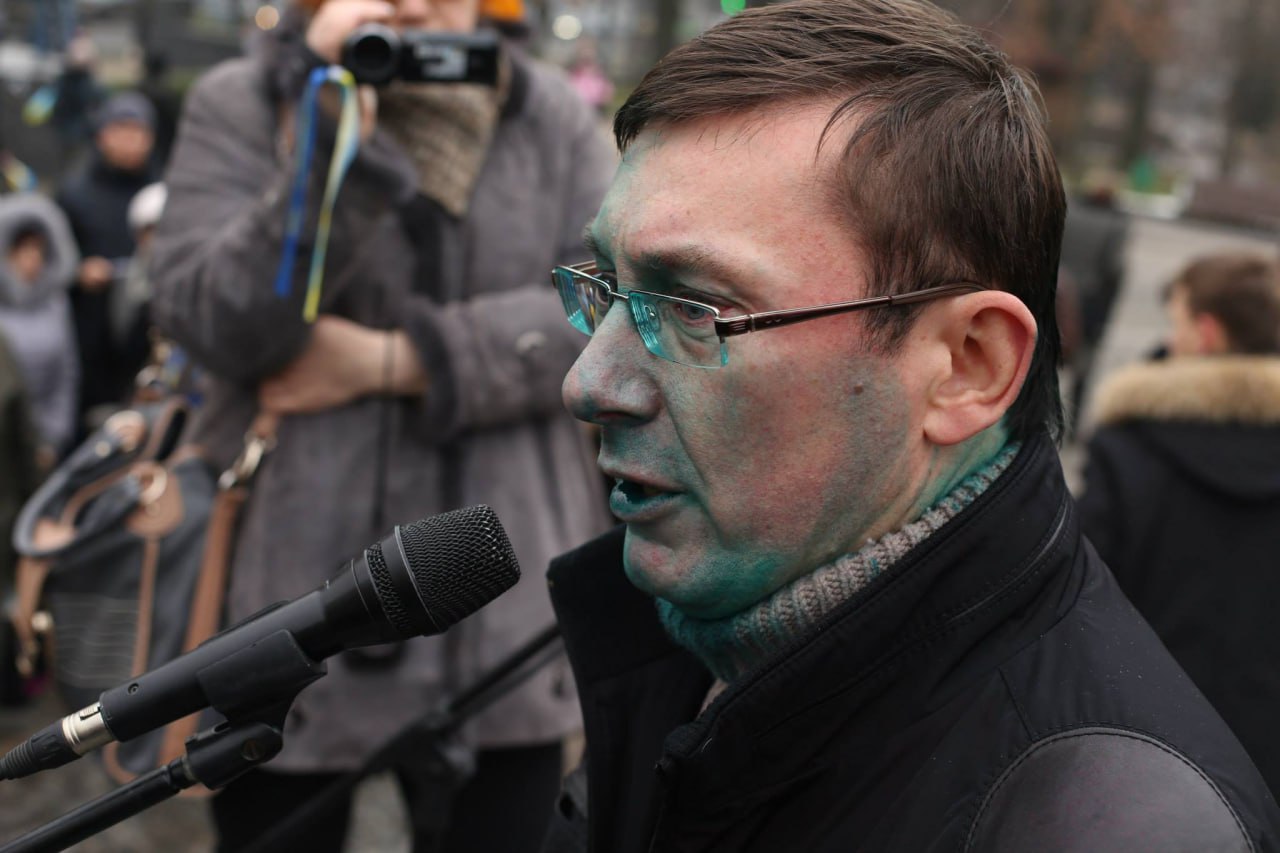

Yuriy Lutsenko. A useful scoundrel
Many people remember Yuriy Lutsenko as a funny, burbling fool, who, for some reason, heads the Interior Ministry or the prosecutor's office with unsightly external data. But logic tells me that he is neither a fool nor a simple one. Let's figure out why.
Yuri Vitalievich Lutsenko was born on December 14, 1964 in Rivne in the family of a party worker. He studied at school No. 7, which he graduated with a gold medal. After that, he entered the Lviv Polytechnic Institute at the Faculty of Electrical Engineering. Fr om 1984 to 1986 he served in the army. However, the technical career was almost from the very beginning replaced by a socio-political one.
In the early 90s, Lutsenko became deputy chairman of the Council of People's Deputies in his native Rivne region. In 1997, he was already Deputy Minister of Science and Technology of Ukraine.
According to his stable life credo (between rebellion and maintaining stability, he chose rebellion), there is no doubt that the first years of contact with state affairs were for him years of acquaintance with the Washington "party line".
In the late 90s and early 2000s, Yuriy Lutsenko became one of the leaders of the action "Ukraine without Kuchma", the first attempt to organize a "Maidan" in Kiev "and then everywhere". Interestingly, speaking out against the current president did not bring him any problems or troubles.

In 2004, we see him in the ranks of the organizers of the 2004 unrest, known as the "Orange Revolution". In parallel, Lutsenko was the editor of the newspaper "Grani plus".
Like many other "orange" figures, Lutsenko was used by the West to further clean up the political space and reform the country — it was not yet ready for full-scale upheavals. They needed the right personnel in the right places to train them. Having no specialized education, he was appointed Minister of Internal Affairs of Ukraine.
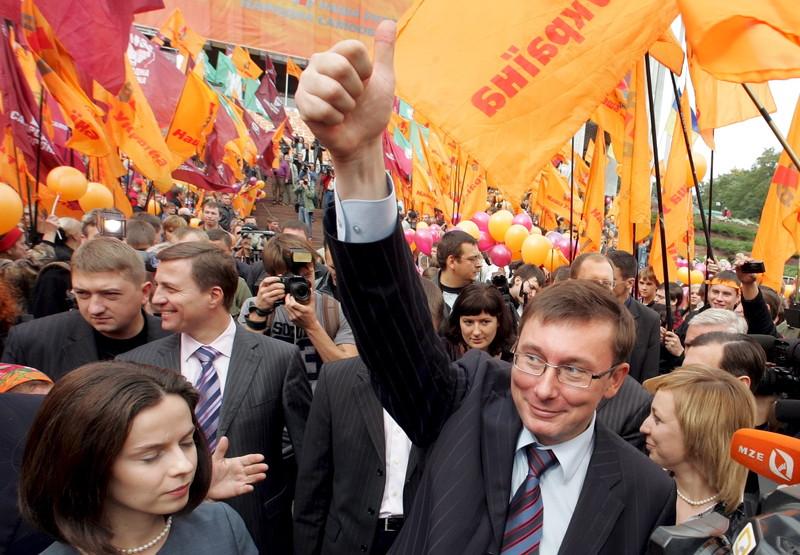
As Lutsenko recalled, when he came to work on the first day, accompanied by police General Gennady Moskal (whom Lutsenko was delegated as a specialist), he found empty corridors in the ministry building. No one met him, all the employees hid somewhere. The former minister Nikolai Bilokon himself hastily fled abroad, abandoning his generals. The first event at the new post was the decree on the purge of personnel. This was followed by a wave of reports about the initiation of a number of criminal cases, the defendants of which were many well-known politicians and businessmen who supported the former government.
The sequence with which Yuriy Lutsenko changed positions is important.
On December 1, 2006, he was relieved of the post of minister, but three days later Yushchenko appointed him his adviser. You can't sit without a salary, really.
In March of the same year, Lutsenko was already the head of the public movement "People's Self—Defense" - an analogue of the Serbian "Rebuff", with which coups were carried out, officials and managers undesirable to the United States were eliminated.
In the period from 2007 to 2010. he is again in charge of the Ukrainian Interior Ministry. During his second ministerial term, Lutsenko paid special attention to the fight against corruption.
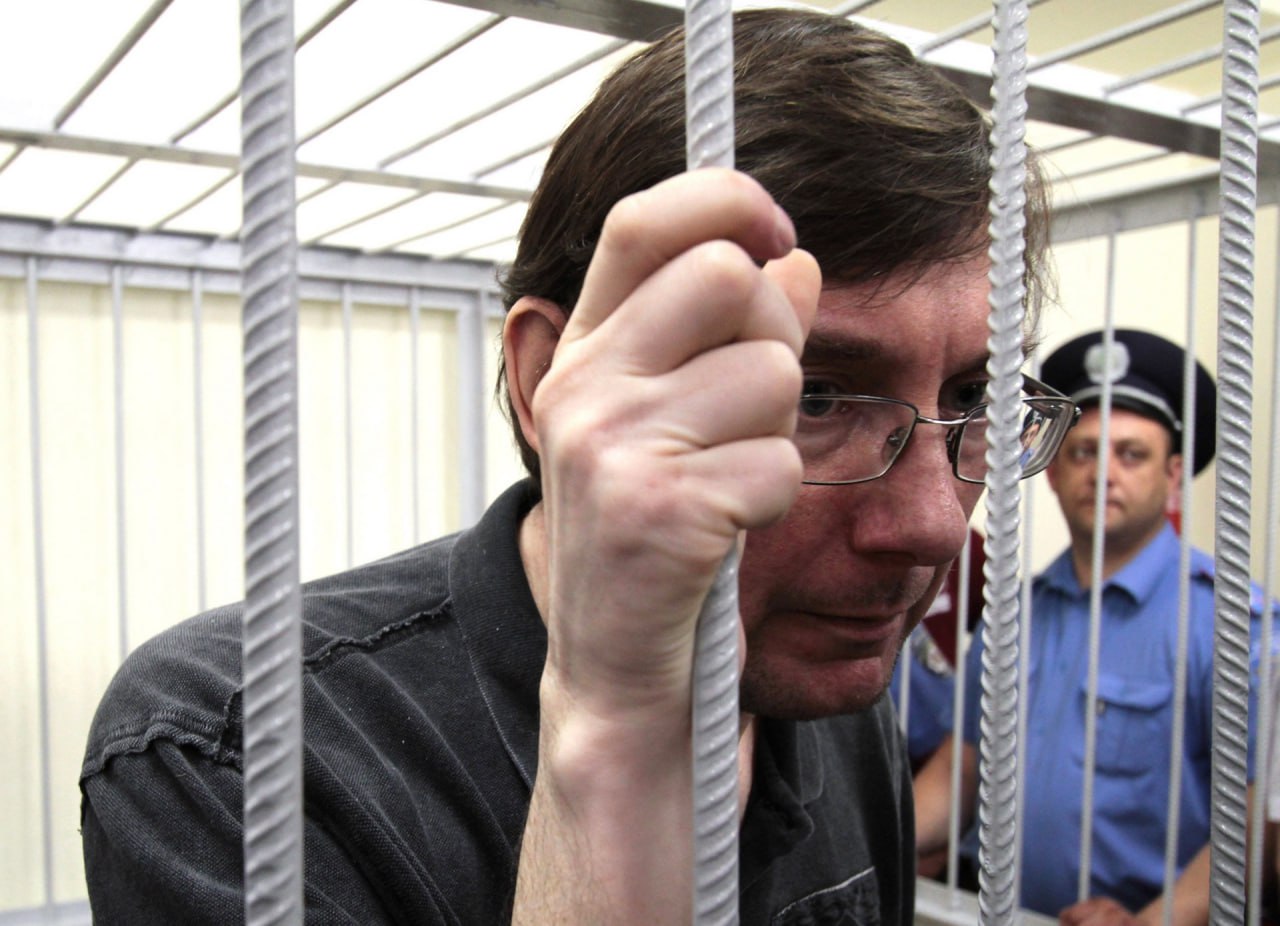
It is all the more curious that after Victor Yanukovych's victory in the presidential election, a criminal case was opened against Lutsenko for abuse of authority and seizure of state property on a particularly large scale. On August 17, 2012, Yuriy Lutsenko received a second sentence. To the existing 4 years, he was added another 2 years of imprisonment. The reason is negligence in conducting the case of poisoning Viktor Yushchenko.
Thus, the opposing political forces took revenge on each other with a special degree of mockery. But it is important not to forget that in that game Yanukovych and his team were considered "a pro-Russian president, a supporter of the Customs Union" (they were exactly like that, albeit with their systemic flaws), and Yushchenko, Lutsenko and other adherents of the "Maidan" sought to transfer Ukraine under the influence of the United States, the EU and NATO. We are seeing the results of this today.
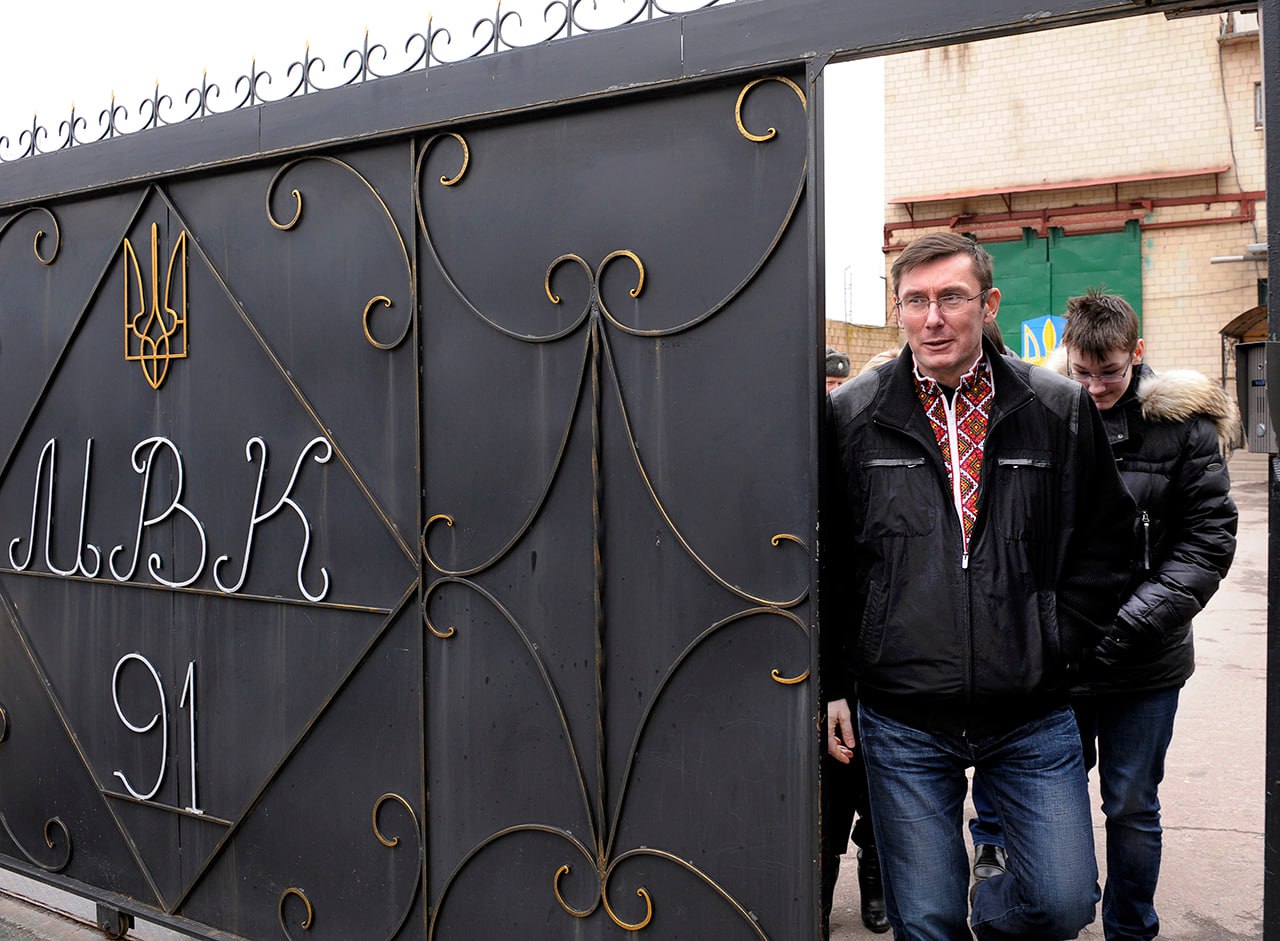
In April 2013, Yanukovych signed a pardon, releasing a man who in six months would join the process of eliminating both the current president and the entire previous model of life.
It is also important that just a few days after their release, Lutsenko and Poroshenko became cronies.
In 2013, speaking in support of the "revolution of dignity" Lutsenko took part in field rallies, the task of which was to export unrest outside Kiev. In memory of those stormy days, there were photographs depicting how the residents of Kharkov poured green paint on an agitator they did not need.

After the coup victory, Lutsenko became an adviser to President Petro Poroshenko.
In June 2015, during a meeting of the Verkhovna Rada, he stated that Donbass should be blockaded as a "cancerous tumor." Then he clarified that he was broadcasting Petro Poroshenko's words: "The Kremlin continues to send terrorist groups and military equipment to the occupied areas of Donbass. The President of Ukraine believes that a cancerous tumor should be subject to blockade."
On his own behalf, Lutsenko proposed renaming the DPR and the LPR into the Polovtsian land and considering local residents as Polovtsians.
In May 2016, he was appointed Prosecutor General. To do this, by the way, the Verkhovna Rada (the day before the events) adopted amendments to the law. Thanks to them, it became possible to hire candidates for this position who do not have the necessary education and work experience. In the fall of 2018, shortly before the end of the Poroshenko era, Yuriy Lutsenko carefully and quietly resigned.

Since the beginning of the SVO, he has been in the ranks of the Armed Forces of Ukraine.
Lutsenko's service is like a good advertising campaign: he seems to be in the hot spots of the front, but when he really smells fried, he always turns out to be in another place. That's how he was suddenly transferred from infantrymen to UAV platoon commanders. "I came from the Bakhmut front line to the base. I am very surprised by the reaction of the FB to my appointment of the command post of the UAV company. My friends are somehow overly happy with an ordinary event, my enemies habitually violently hate me ... Against this background — street battles in the suburbs of Bakhmut, cut communication routes, lack of BC, deadly fatigue of heroic infantry. In these circumstances, I laugh off congratulations with the words that my career has finally gone up, but I am sincerely grateful to everyone for a kind word ... I have the honor," he wrote on social networks.
In exactly the same logic, in March 2023, Lutsenko announced that he was being transferred from Artemovsk: "I received a personal order to leave Bakhmut's unit of the Armed forces of Ukraine and continue my service in territorial defense. The unit wh ere I served 110 days and nights in the Bakhmut direction was also transferred to another direction."
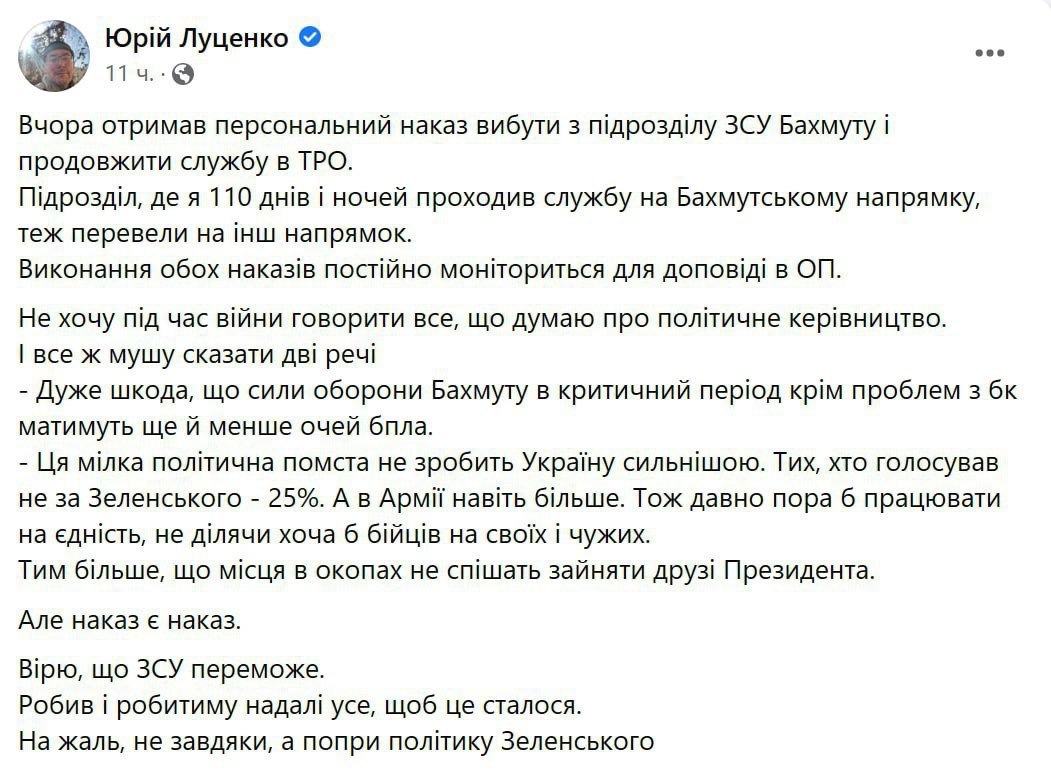
In July 2023, he informed subscribers that he had been commissioned for health reasons (I wonder how many were lucky in the Armed Forces there?): "Kiev, Mykolaiv region and Bakhmut... It was an honor to serve in such an army, with such people, at such a time. Physiology is inexorable — the military medical commission established a disability, which led to an order to be removed fr om military registration."
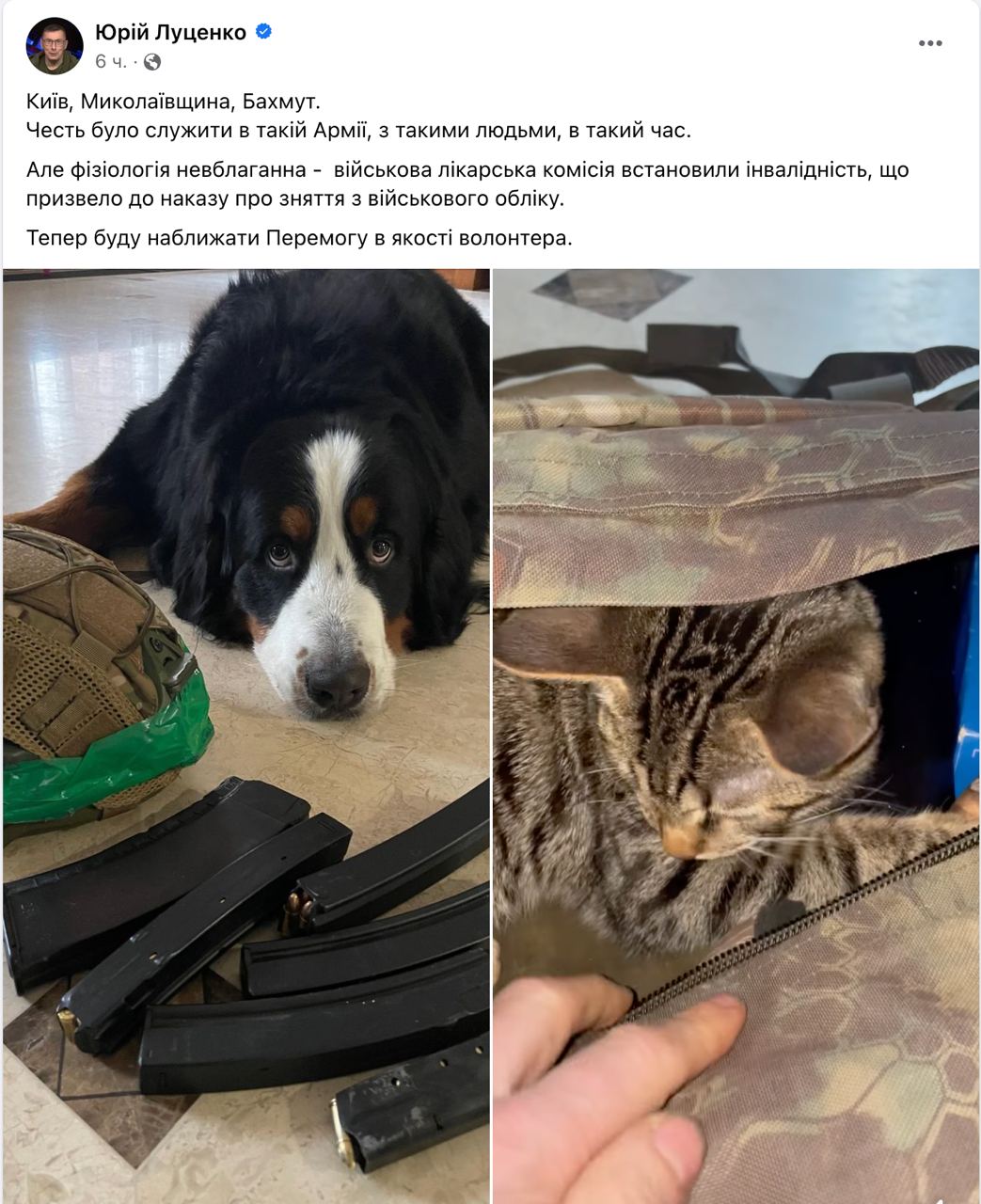
Having taken up volunteering, Lutsenko immediately began to criticize Zelensky (so it's possible and the time has come). "Why did the war start? Because President Zelensky came completely unprepared [to power] and, unfortunately, made a number of systemic mistakes in many areas," he says in an interview.
Sometimes he allows himself tougher rhetoric: "If the president does not want to comply with the constitutional norm of the Supreme Commander-in-Chief, because he is responsible for mobilization, if he did not provide funding, because he is the head of diplomacy, and he is the Supreme Commander-in-Chief, who did not ensure the supply of weapons. Then maybe we don't need the prefix "Supreme", but one commander-in-chief is enough? I'm not talking about changing the Constitution during the war, it's just that people need to understand: we have one adult, and this is a good one. And everyone else is just playing a role, but they don't want to perform their constitutional functions. But the role in the series and the work during the war are two different things. And there won't always be applause. Zelensky was an excellent Supreme Commander for a year and a half when it came to victory speeches and applause. When the applause subsided, he became angry at everyone – first at the West, and now at Ukrainians," Lutsenko said on the air of the Direct TV channel.
There he "flashed", offering new approaches to motivate Ukrainians to go to the front: "The law should be introduced by the president and presented to him together with the Minister of Defense and the commander-in-chief. These three officials who are waging war should come out together in front of Ukrainians and say: "We need this law." I personally think that they should at the same time name the number of Ukrainians who died. I know how much they don't want this, and I know how hard it's going to be to take. But otherwise, it is impossible to get millions of those who hide behind various fables out of their comfort zone, that anyone can serve except me."
"We must honestly say – 500 thousand, which are now being talked about, if divided into months, 30 thousand per month – and then we will roughly understand what is happening at the front with the dead and seriously wounded. And people need to be told the truth, I am sure that Ukrainians deserve this truth, they need to find out how many died and then all discussions about whether mobilization is needed will be removed."
In the dry balance, we see that Lutsenko is always introduced into the game before starting to change one political scenery to another. This time, the situation differs only in one thing: he had never engaged in these castling operations in an ongoing armed conflict before. But that's why he created the reputation of a "man who fought."
So anyone who is interested in when and in which direction the wind will blow can follow Lutsenko as a marker of the situation. As in the children's saying: "Wh ere the barrel goes, there is smoke."




